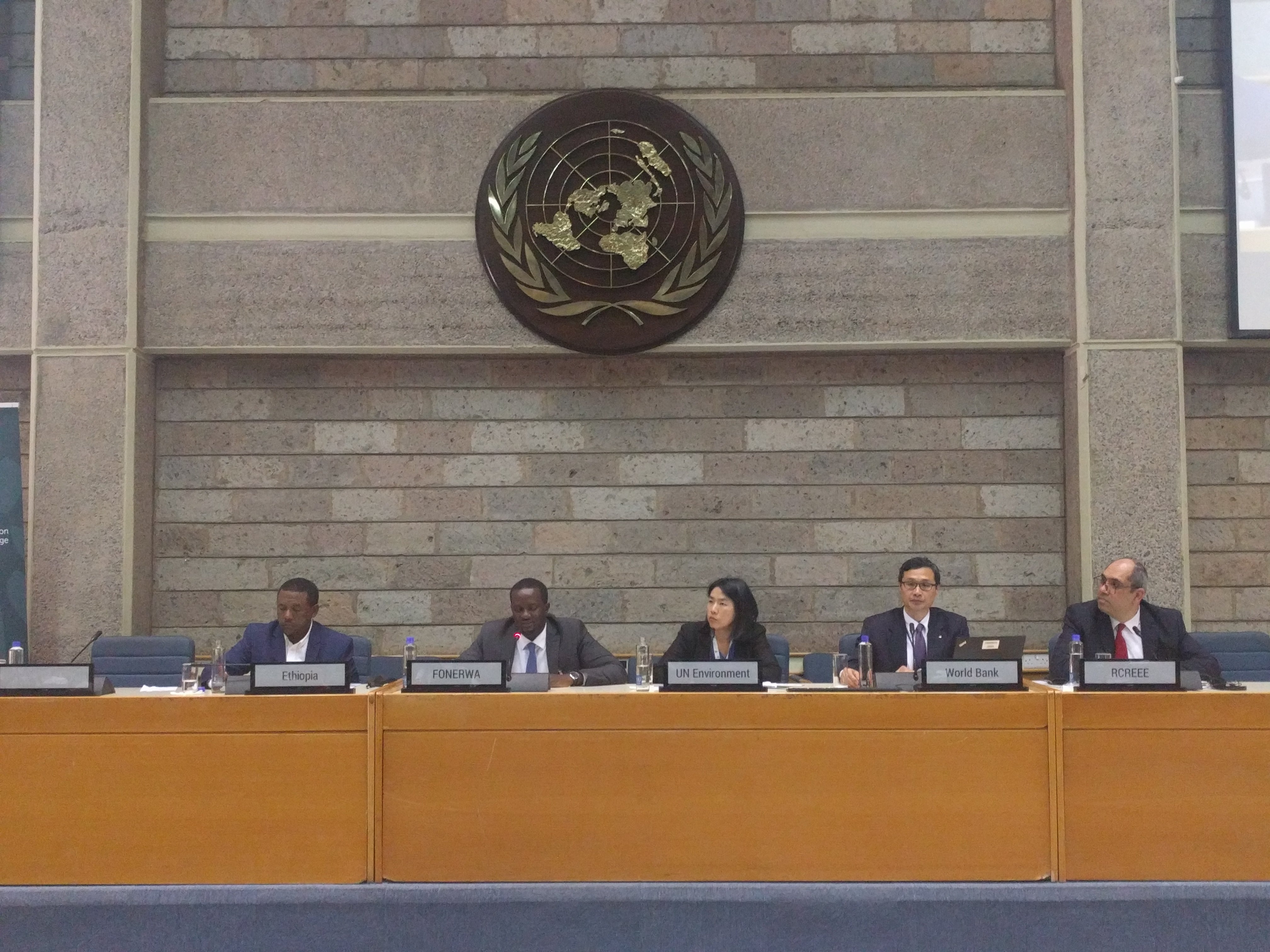
Albert Einstein once said: “The only source of knowledge is experience.” For years I have wondered about this. Surely you can understand something without actually having done it. After all, mankind’s understanding of the vast universe is greater than what can be directly experienced, and some of it is derived from theoretical reasoning. I was on my way to the 2018 Africa Carbon Forum to share fiscal policy lessons under the CAPE program and the debate was still raging in my head when I arrived at the UN campus in Nairobi Kenya.
CAPE stands for Climate Action Peer Exchange and is an avenue for peer learning between countries and a channel for countries to receive advisory support. At this gathering of policymakers, private industry, and technical practitioners was clear that Experience was the showpiece. And there was Experience in abundance. Given the setting, the decision to focus on promoting the exchange of country experiences on climate and fiscal policy seemed to have been the right one.
CAPE was launched in May 2017 to focus on fiscal policy and Nationally Determined Contributions (NDCs). So far CAPE has reached finance ministries in 39 countries - from Bangladesh to Zimbabwe – and the program continues to expand its reach through more technical workshops and policy gatherings.
Knowledge sharing is a constant feature in all CAPE meetings, and nine countries have already presented their experiences to CAPE peers. Topics ranged from environmental fiscal reform, macroeconomic modeling for NDCs, and public expenditures management for climate change. For the Africa Carbon Forum, CAPE had arranged for the National Treasury of South Africa to meet with the Prime Minister’s Office of the Ethiopian Government - to share experience and perspectives on the carbon tax.

“The most practical and quickest way to learn policy-making is through interacting and exchanging experiences with others in similar positions,” said Dr. Memory Machingambi, Senior Economist of Environmental and Fuel Taxes at the National Treasury, as she proceeded to relate South Africa's experience with the carbon tax. After a decade of planning, painstaking design, and listening to stakeholders, South Africa is set to implement its carbon tax in January 2019. Listening to Dr. Machingambi was Dr. Mulugeta Mengist Ayalew, Director of Climate Change Affairs at the Prime Minister’s Office of Ethiopia.
Ethiopia is aiming to reach middle-income status by 2025 as a climate-resilient green economy. Dr. Ayalew noted that it takes years of planning to design any new tax, so Ethiopia was keen to hear about the practicalities of implementing a fuels-based carbon tax as part of its policy deliberations. The conversation ranged from technical issues of tax coverage and distributional impacts to the role of public communications and political economy considerations.
As I watched the two practitioners engaged in earnest exchange, I forgot for a moment that CAPE’s exclusive focus on finance ministries and fiscal instruments had once limited its relevance to a special interest platform. Tax, spending, and risk management were not considered the first means for carrying out climate policy. But now more and more policymakers recognize the crucial role that Finance Ministries play in the push to deliver on the NDCs. At the conference hall where the plenary was held, I was reassured to hear statements that brought fiscal policy into confluence with climate policy. HE Keriako Tobiko, Cabinet Secretary of Environment and Forestry of Kenya said that a carbon price has an important role in providing the right incentive for the low-carbon transition and the shift in investment patterns, including in Africa. The Minister of Environment of Nigeria, HE Ibrahim Usman Jibril talked about the country’s green bond issuance (and offered to share this first African experience with others). The African Development Bank’s Manager of Climate Change and Green Growth Division was heard making a point about the crucial national budgeting processes for NDC implementation.
This last point had special resonance for me. Finance ministries are responsible for tax policy, but they also manage the all-powerful tool of the national budget. Indeed some years ago the World Bank published a policy note on the budget process and climate policy. African countries are considering the merit of this, and some have chosen to act. The Ugandan Government recently stated in its Budget Call Circular that all ministries shall show evidence of climate change considerations in the 2017/2018 Budget Framework Papers.
All this has meant a surge in interest in fiscal tools, and confirms the need for a program like CAPE -- to channel experience and expertise to finance ministries. And there are others like CAPE that we are working with to take the message further. One such like-minded partner was the Green Fiscal Policy Network, and Dr. Joy Kim from the policy network believes that scaling financial flows for NDCs will involve “… the smart use of limited public resources through fiscal measures such as carbon taxes, fossil fuel subsidy reforms and tax credits for financial mechanisms”.

As the forum wound to a close, participants were still swapping stories with one another about policy successes and mishaps. I felt satisfied that CAPE’s peer exchange session between South Africa and Ethiopia was conducted against this backdrop. Integrating climate change into fiscal policy is still an emerging science, and CAPE intends to continue spreading the experience of the early practitioners and in time finance ministries would grow into a formidable new front in the global climate response.


Join the Conversation